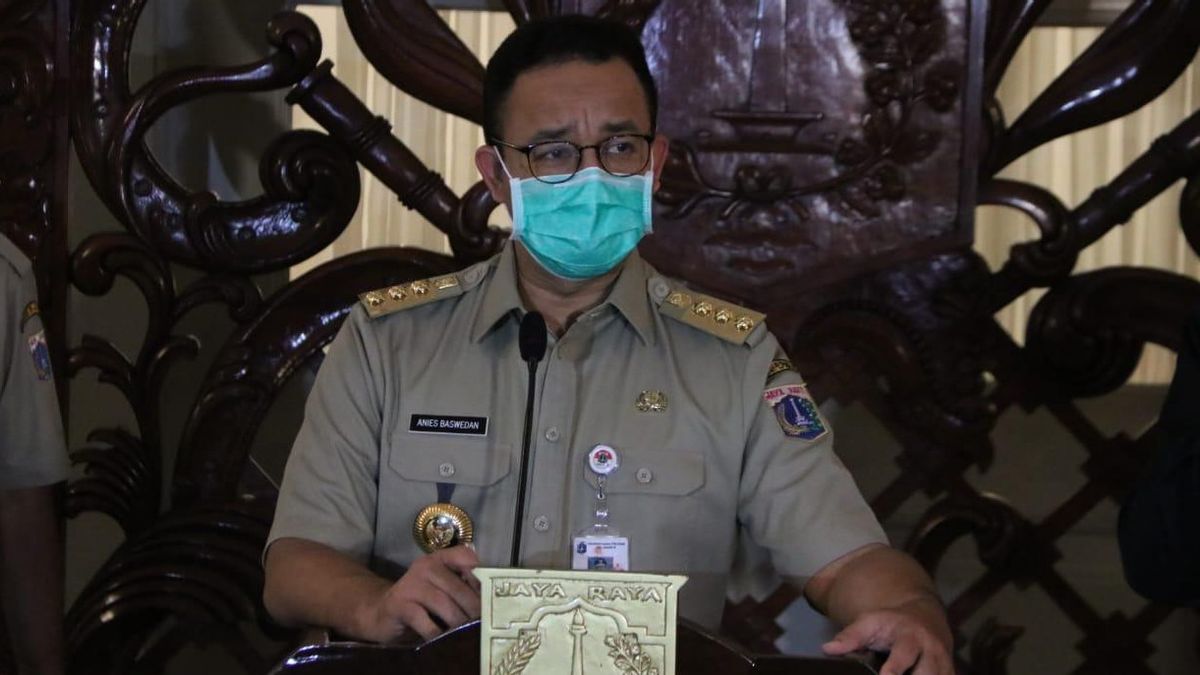JAKARTA - The Governor of DKI Jakarta Anies Baswedan is still waiting for the permit to determine the status of Large-Scale Social Restrictions (PSBB) from the Ministry of Health (Kemenkes).
This status is needed to make a policy to prevent the transmission of COVID-19 or the corona virus so that it does not become more widespread. For example, restrictions on the flow of transportation to and from the Jabodetabek area during the homecoming season. This cannot be done when a province has not received PSBB status.
While waiting for the granting of this status, the Head of the Ombudsman Representative for the Republic of Indonesia, the Greater Jakarta Representative, Teguh Nugroho, provided notes on improvements that Anies could take to add steps to handling COVID-19.
This suggestion for improvement is based on public reports and findings by the Examining Team for the Ombudsman RI Representative of Greater Jakarta in the field.
"We convey this corrective effort solely to increase efforts to deal with COVID-19 in Jakarta as the worst affected area of the pandemic so that it will be better," Teguh told reporters, Sunday, April 5.
First, Anies can intensify the socialization of the referral channel for COVID-19 suspects through the referral hospital line or from private hospitals for people who carry out independent checks.
"This is because the examination team still finds the community suspected of having COVID-19 who was rejected at a number of referral hospitals for the full reason. The refusal was carried out by both the Jakarta Provincial Government's referral hospital and hospitals under the Ministry of Health, such as the Kemayoran Athlete House," said Teguh.
Second, it is still related to patient rejection related to COVID-19. This rejection, according to Teguh, was due to the limited number of isolation rooms owned by hospitals.
Therefore, the Ombudsman asked the DKI Provincial Government to coordinate further with the COVID-19 Task Force, including the Private Hospital Supervisory Agency to increase the number of isolation rooms.
"However, the Ombudsman asked the DKI Jakarta Provincial Government not to accept assistance in providing emergency hospitals built in residential areas, such as apartments. This is because these buildings are not designed with infectious disease handling facilities," he explained.
Third, the Ombudsman asked the DKI Jakarta Provincial Government to increase the number of rapid test users in areas designated as red zones, where the potential for spread is more difficult to detect and in slum areas.
"We are concerned about the high burial rate in March 2020 as part of the undetected tip of the iceberg of the spread of COVID-19. This potential exists in densely populated residential areas," he said.
The English, Chinese, Japanese, Arabic, and French versions are automatically generated by the AI. So there may still be inaccuracies in translating, please always see Indonesian as our main language. (system supported by DigitalSiber.id)










